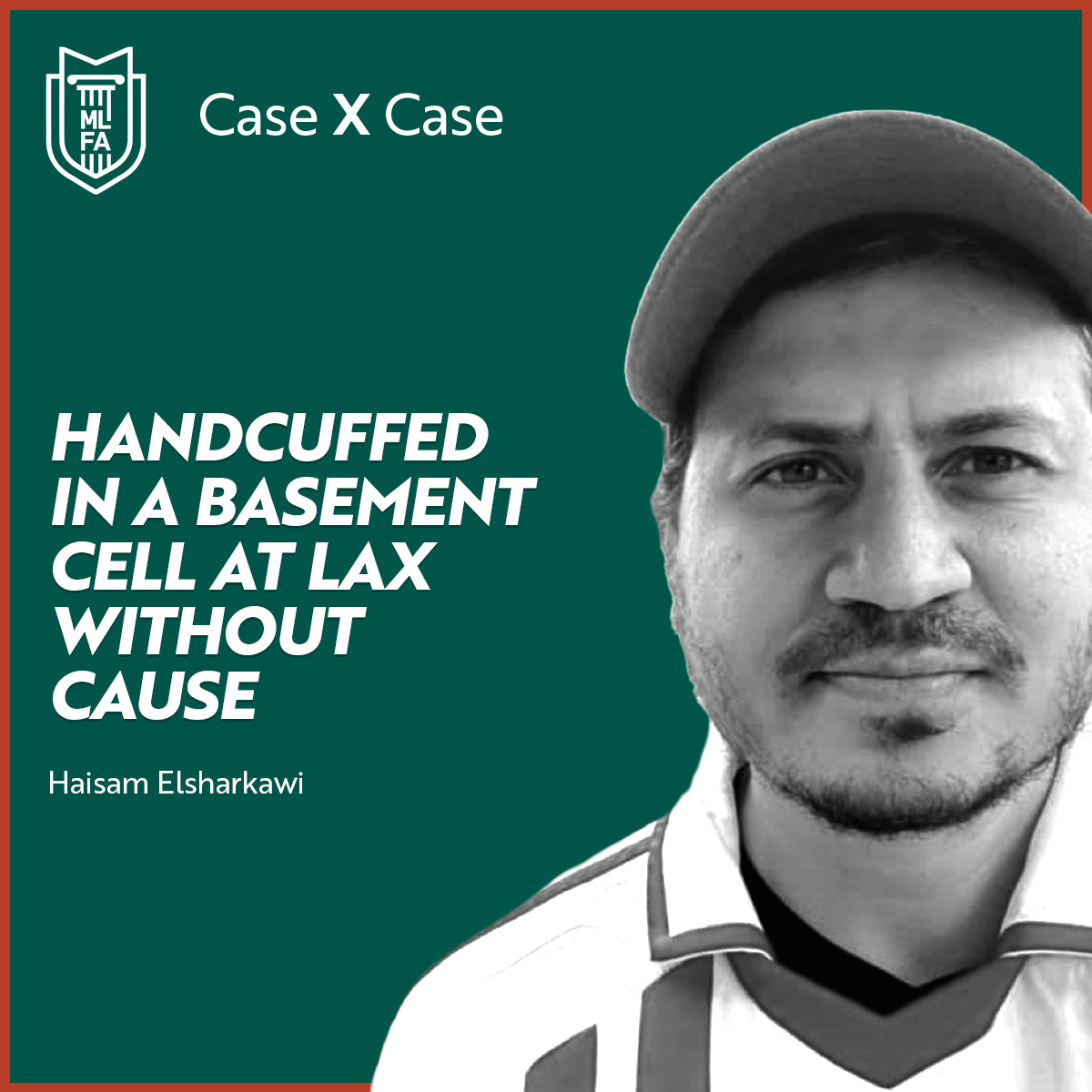Dressed in religious attire, U.S. citizen Haisam Elsharkawi prepared to take an international flight in February 2017. International travel was not new to him. He had visited family in Egypt many times, approximately every two to three years. This trip was different: he went to Los Angeles International Airport to start his trip to Saudi Arabia for religious pilgrimage. He had saved for this trip, and he was ready and eager to go. He never made that trip.
Instead, he was questioned by multiple agents at the airport, who went through his bags again at the gate and insisted he must be hiding something. When he asked for a lawyer, the agents took him by force in handcuffs to a basement cell in the airport. He remained there, handcuffed to a bench, for four hours. He carried no contraband. He committed no crime. Yet his flight left without him. Agents only let him leave after he felt worn down enough to provide the code to his cell phone. As agents searched his phone, they asked him about Amazon and eBay purchases, what mosque he attended and how often he prayed, and they looked through pictures of his wife without her hijab. No one ever charged him with any crimes.
He still wants to make that pilgrimage. But after what he endured he was afraid to try again, afraid that next time it might be more than four hours, or that agents might take him somewhere other than a cell in an airport basement that he had never known existed. So he filed administrative charges, but got no response. Then he MLFA and with their attorneys, he filed a lawsuit. And he won, partly: the government did not fight his claim for personal injury damages, and the court awarded him $20,000. He wanted to make a change so this couldn’t happen again, so he continued with his constitutional challenges to the government’s actions.
But he continued with his lawsuit, truthfully stating he would travel in the future as soon as he could, but due to the pandemic he didn’t know and couldn’t say for sure when that would be. The courts told him he couldn’t bring these claims because he hadn’t shown enough of a risk of future harm—because he didn’t allege specific days he planned to travel internationally, at a time when no one could.
MLFA’s legal division just filed a petition to the Supreme Court of the United States on behalf of Mr. Elsharkawi, asking the top justices in the land to consider his suit. If we are successful, this will change the game for when and how individuals can sue the government, seeking court protection from harm in the future. Mr. Elsharkawi should not have to go through this again, and neither should anyone else.

